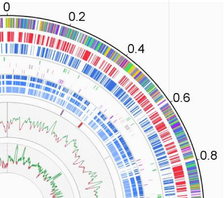|
About us:
The PORTAL Biomarker Research Consortium (PBRC), started in January 2017, draws on PORTAL's expertise in biostatistics, epidemiology, clinical medicine, ethics, law, and regulation to study the properties and patterns of biomarker-driven health research.
What are biomarkers?
Biomarkers are properties of a patient or a biological specimen believed to be predictive of a particular clinical status. This can include the susceptibility to a particular illness, or the likelihood of benefit or adverse reaction to a given treatment.
Why study biomarkers?
Biomarkers are potentially powerful tools in clinical development. For example, using surrogate endpoints in clinical trials, such as reductions in lipid levels for cardiovascular disease or progression-free survival for cancer, can reduce the time and cost needed to assess the efficacy of new treatments. However, valid use of a surrogate endpoint requires a formal assessment linking it to actual clinical endpoints, such as organ failure or mortality.
Similarly, using predictive biomarkers, which can prospectively identify patients likely to benefit (or not) from a course of therapy, can reduce the risks and total number of patients in trials. However, valid use of predictive biomarkers requires a demonstration that the biomarker test accurately selects for the patients who benefit and excludes those who do not. Unfortunately, there are numerous examples where biomarker endpoints and predictive biomarkers have been used in the research and clinical setting without adequate validation. Our goal:
Thus, our aim is to provide evidence-based policy recommendations for how the development and regulation of biomarkers may be structured to better safeguard public health while still enhancing efficiency across the therapeutic research enterprise.
|
|
Program On Regulation, Therapeutics And Law (PORTAL)
Division of Pharmacoepidemiology and Pharmacoeconomics 1620 Tremont Street, Suite 3030 Boston, MA 02120 |




